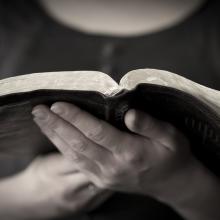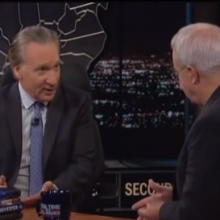Scripture
Tuesday was a big day here in Washington, D.C. The president of the United States addressed both houses of Congress and the Supreme Court, laying out his State of the Union. In this annual speech, the President lays out his vision of where the country is at, and where we are headed. With great pomp and circumstance, the Commander-in-Chief delivers a message for the whole nation.
Tuesday night was a big moment for my community, too. The D.C. small group of Friends of Jesus gathered for our first small group meeting of 2014. We caught up with one another after many weeks apart. We experienced the story of Acts 2 in the form of a bibliodrama that we acted out together. We shared a time of deep worship and prayer.
As the New Year brings reflection over the past year, we have heard much about Pope Francis and the ways he has surprised Catholics and non-Catholics alike. The suddenness of his predecessor’s resignation this past spring, the fact that he is the first Pope from the Americas, and his apparent commitment to his namesake St. Francis’ concern for the poor and displaced all contribute to the sense that this Pope embodies the unexpected.
Especially indicative of the way this Argentinian, who for a short time was a nightclub bouncer, has surprised people is being named “Person of the Year” by The Advocate, a popular U.S. magazine devoted to gay and lesbian rights, culture, politics, and entertainment. Although he did not (nor will he, likely) reverse the Church’s stance on gay marriage, this accolade was given to the Bishop of Rome based upon his apparent change in tone about gays and lesbians, reportedly having said to reporters, “Who am I to judge?” when asked about the issue. Clearly, this humble response has endeared the Pontiff to many who have been excluded from the fold, yet still yearn for hints of acceptance.
The period of Epiphany is a time in which the identity of the Divine’s chosen is revealed and often this identity entails some element of surprise. In the same vein, this week’s Old Testament text, Isaiah 49:1-7, highlights the unforeseen nature of the servant who restores Israel.
It’s a new year, and Congress is back in session.
One of the top issues expected to be debated in 2014 is a hike to the federal minimum wage. 13 states have instituted wage increases. President Obama has supported raising the minimum wage throughout his presidency. Most recently, he shared his approval of new legislation proposed by Sen. Tom Harkin and George Miller (D-Calif.) that would raise the minimum wage to $10.10, up from it’s current $7.25.
Critics of the Harkin/Miller bill are quick to decry any wage increase. The usual arguments are trotted out to combat progressive pay for low-wage earners. Here are five commonly perpetuated myths about minimum wage. Hopefully, their exploration will shed a more accurate light on this contested issue.
“Jesus was a radical who welcomed everyone and criticized powerful leaders who oppressed the poor. Jesus was crucified because he was a political threat. But the Apostle Paul was a conservative missionary who misunderstood Jesus and was anti-woman, pro-slavery, and anti-gay.”
That seems to sum up how many progressive Christians view Paul. But are such views justified by the biblical record? Or are there other ways to understand the zealous Pharisee who became an apostle to the Gentiles?
IN THE EARLY 1970s, I came across an article on Jesus’ women disciples in the Christian social justice magazine The Other Side. I was shocked. I had attended church all my life; how come I never noticed those women disciples?
What I didn’t know then was that a renewed “search for the historical Jesus” was underway. Applying the ever-developing insights of sociology, anthropology, and archaeology, scholars were investigating the socio-economic and political aspects of life in first century Palestine. How did Jesus fit into his historical context? As a peasant healer, how did he challenge the Roman occupation and their clients, the chief priests at the temple in Jerusalem?
It takes a while for new insights from biblical research to reach lay Christians. This is further delayed if church leaders are suspicious of intellectual elitism and fearful some of their parishioners might “lose their faith.”
As we move into the Sundays following Christmas and begin to anticipate Epiphany, we face the terror of the coming week’s Gospel reading, the Massacre (or Slaughter) of the Innocents. While there are a number of stories in the Bible that are difficult to read/hear, Herod’s murdering the innocent children of Bethlehem in his attempt to kill a potential threat to his throne must be among the top.
Herod’s brutality is legendary. Most of what we know comes from the Jewish historian, Josephus. Matthew records that Herod became distraught when he learned from the Magi that an astrological sign had indicated the birth of a Judean King (2:1-8). When the Magi did not return to report the location of this newborn King, Herod realized that he been tricked and “he was infuriated, and he sent and killed the children in and around Bethlehem who were two years old or under” (2:16). While scholars debate whether this event is historical or not, it is certainly consistent with what we learn about Herod from Josephus.
When furloughed Peace Corps worker Angela Kissel showed up to support Sojourners’ Faithful Filibuster on Capitol Hill in September, she was surprised to be handed a Bible and invited to read from the podium some of the more than 2,000 biblical verses related to poverty and justice. —The Editors
READING SCRIPTURE outside the Capitol may not seem like a momentous occasion, but for me it was divine. You see, the day before, a well-intentioned pastor told me my place in the church was limited to specific roles because I’m a female. He told me it was against scripture for any female to preach, that roles for leadership are clearly only for men, the “father” figures of the church.
In response, I listed every female prophet and leader. I went through the patriarchal lens in which parts of the Bible are written due to culture and general misogynistic norms of the time. I noted the hypocrisy of highlighting some scriptures while blatantly overlooking others when it doesn’t fit the current agenda. And lastly, I walked through Jesus’ ministry and discussed how he went against cultural norms to illustrate the equality of women to the extent of choosing a woman to tell the world the full story of the gospel.
After an exhausting 65 minutes, we agreed to disagree. We prayed and ended the conversation. I walked away drained and slightly defeated. I wondered why God had put something on my heart and empowered me to speak up, when God knew I’d lose the battle. I also started to question myself and wondered if I should just stop fighting.
I think what turned me off the most was the hair. It was just so ... big. And the scrappy “don’t mess with Texas” vibe. And the fact that evangelical moms all over the country were fans. As a third generation New Yorker, cynicism and snark have been bred into me, along with an affinity for black clothing and pretentious coffee. So it has surprised everyone — including me — that I have spent the past year going through (and recommending) Beth Moore studies.
How did it happen? Well, I moved from my hometown of New York City to Washington, D.C., and while I was exploring various employment opportunities, I had a lot of free time. The wife of the former associate pastor at the church I’d started attending invited me to join a “women’s Bible study” that met on Friday mornings. They were doing a Beth Moore study called Breaking Free. It seemed fishy to me — who are the only women who have free time on Friday mornings? Moms. And Beth Moore? I had spent six years attending and four years on staff at a church in New York that got super famous because of its own rockstar, hyper-intellectual, and somewhat post-modern teaching. We prided ourselves on not being ... well, like Beth Moore.
Still, I was trying to be open to life in my new city so ...
I walked into the group a couple of minutes late wearing gold sequin pumps, skinny jeans, and a red leather jacket — what I would normally wear to bum around town in my old life. I could not have been more out of place amidst the yoga pants and baby blankets. But I met some of the most awesome women I’ve known in D.C. and more importantly — I met Beth.
Macy's decided to open its doors to shoppers on Thanksgiving Day at 8:00 p.m. Time magazine reports that people are denouncing the move as “greedy, misguided, and unfair to the employees being forced to work on a day traditionally reserved for family.”So how is Thanksgiving doing? Is it deceased, or has its death been greatly exaggerated?
The apostle Paul must have wondered about this when he wrote his letter to the Colossians, a group of Christians living along a main roadway in Asia Minor — what is now modern Turkey. They were pulled between the values of their faith and the values of their culture, much as we are today. Paul warned them, “See to it that no one takes you captive through philosophy and empty deceit, according to human tradition, according to the elemental spirits of the universe, and not according to Christ” (Colossians 2:8).
These words ring true today, don’t they? We know the philosophy of trying to spend ourselves out of economic troubles. The empty deceit of a sales pitch. The human tradition of making the holidays an orgy of consumption. The elemental spirits of the universe that lure us away from Jesus Christ.
Paul asked the Colossians, and he asks us, “Why do you live as if you still belonged to the world?” (2:20). It’s a good question, one that we should ask ourselves on Thanksgiving Day, and every day.
There is a popular African proverb that says, when elephants fight, it is the grass that suffers. This proverb highlights the reality that too often while nations and powerful entities fight amongst themselves, the common people of the land suffer the most. It is a historical truth that those who make the decision to wage wars (military, legislative, or otherwise) often have the least to lose. Sure, they may lose their prestige, position, or power, but in the end their essential well-being and access to basic necessities are maintained. Sadly, the same cannot be said of many of those who are the instruments and casualties of war and political conflict.
Veterans: America’s Suffering Grass
In the United States, a large number of veterans who fought in wars at the command of the political elite have returned home from the battlefield to a life of impoverishment and fickle social services.
When I was a Ph.D. candidate in Yale University’s New Testament program, I had the honor of preaching at an ordination service for a classmate who was being ordained as a Presbyterian minister. Following the service, a number of my classmates asked me why I wanted to spend four-seven years working on a Ph.D. in New Testament when I clearly had a "gift" for preaching. I responded that it was actually my academic study of the Bible coupled with my life experiences that illumined and enlivened my preaching.
I did not grow up reading the Bible. I was almost 19 years old and a U.S. Army soldier stationed in the Federal Republic of Germany when I purchased my first Bible. A series of life-changing events led to me "accepting Jesus Christ as my personal lord and savior." A few months after purchasing my first Bible, I attended a revival service at a local church. I returned to post that evening describing the service to fellow soldiers, who, along with myself, comprised a group self-identified as the "Soul Patrol." We were African-American Christians who strongly believed in the necessity of Christian evangelization.
Last week, Half in Ten released its third annual report on its commitment to and efforts toward U.S. poverty reduction. The Half in Ten Campaign is a joint project of the Center for American Progress Action Fund, the Coalition on Human Needs, and The Leadership Conference on Civil and Human rights, with a mission to build political and public will to cut the nation’s poverty rate in half in 10 years.
In her remarks, Neera Tanden, president of the Center for American Progress, stressed the need to move the conversation in Washington away from implementing austerity measures that ultimately harm the poor.
Scripture also reminds us over and over again to care for the least of those in society, including widows, orphans, and immigrants in our midst. We are called to be generous with what we have. Labor Secretary Thomas Perez echoed this truth at the Half in Ten meeting, urging that at this time, we need to “turn toward one another, not against one another.”
The plight of Job is one of the most familiar stories from the Hebrew Bible. Many of us know Job’s suffering and the tortuous advice of Job’s “comforters.” The experience of suffering is universal. In the midst of our suffering, we seek to understand, to process, to comprehend. For individuals of faith, events of radical suffering plunge us into a theological crisis. Where is God? Is God causing this to happen? Is God allowing this to happen? Why?
The crisis deepens when we realize that the suffering does not match our preconceptions of how the world should work. We seem to think that if we output positive vibes into the world, the world (or God) will reciprocate. That would be fair. That would be right. That would be just.
However, in the reality of human experience we recognize that great fortune sometimes falls on the underserving, while horrible events beat down the most innocent among us.
Perhaps this is why so many of us can relate to the book of Job. Here we have a character who does everything right. From the first verse, we know that Job is “blameless and upright, one who feared God and turned away from evil” (Job 1:1). In fact, these characteristics draw God’s attention and praise.
When I began to read, I started by going through the Psalms. An elderly gentleman paused to listen, and then requested if I could read aloud his favorite, Psalm 91. As I read it, he also began to softly quote the verses by heart, praising God and saying “hallelujah” before thanking me and walking on.
Later, a local pastor from the District Church in Colombia Heights came to read. We met a couple visiting from Louisiana. The wife was a furloughed federal employee with Immigration and Customs Enforcement. It was interesting to hear her point of view working first-hand with immigrants in a deportation capacity. She said as a Christian, it is sometimes very difficult to find a balance between desiring to deport violent criminals, and also wanting to keep hardworking, law-abiding immigrant families together. She and her husband thanked all who were participating in the Faithful Filibuster for keeping Christ present during the government shutdown.
As the next speaker from Salvation Army was reading, several teens participating in a rally at the Supreme Court came to ask about what we were doing. After explaining the filibuster’s mission, a young boy thanked us, shook hands, and said “God bless you.”
Setting an away email with no date of return was almost as odd as leaving work and not and knowing when I’d be back. This unexpected time off gave me the opportunity to do everything on my to-do list and spend ridiculous amounts of time at the dog park. Naturally, it also gave me time to catch up on reading and visiting with other furloughed friends. But this past Wednesday I was beginning to feel a bit hopeless about the whole situation.
Scrolling through Facebook I noticed Sojourners updates on its #FaithfulFilibuster and it truly made me ashamed of my hopelessness. I was ashamed because I forgot who was in charge. I was ashamed because I forgot where my hope lies. And I was ashamed because I was so wrapped up in my own struggles of furlough I forgot about the families that were already struggling and now also dealing with a loss of paychecks.
On Thursday I saw another update from Sojourners, and despite the rain, I felt compelled to go check it out. I expected to do nothing but observe and admire faith leaders stepping out to reclaim hope and speak for the millions of silenced voices in this country. However, when I arrived, something different happened. I was asked if I wanted to participate, handed a Bible, and stepped to the podium to read.
As people of faith, we sometimes don’t take time to prepare ourselves for what is ahead. With so many things vying for our time and attention, it is difficult to educate ourselves about all facets of critical matters. Even in our relationship with God, we gloss over important details that will guide us into a closer walk and become content with a distant half-hearted relationship. However, a casual walk with God is not one we should settle for. By delving into God’s Word, we are able to draw upon God’s wisdom for guidance and find a deeper relationship with God as we travel through this journey of life.
In a similar fashion, we cannot settle for casual knowledge of the Affordable Care Act, which is now upon us and “gives Americans unprecedented information about the health plan choices in their own communities.” The Kaiser Family Foundation reports in a recent poll that 51 percent of all Americans are still unsure about how the ACA will affect them. 42 percent of Americans thought that Congress had overturned the act or that the Supreme Court had ruled it unconstitutional. And, many Americans worry that they will have to shell out more money due to the new health reform law. This uneasiness and misinformation certainly warrants a closer look as we journey through the multiple avenues of the Affordable Care Act.
Cleats and Dignity
The civil rights struggle for African Americans happened in every sphere of life. Breaking the Line: The Season in Black College Football That Transformed the Sport and Changed the Course of Civil Rights, by Samuel G. Freedman, tells of two great black coaches in the tense year of 1967. Simon & Schuster
Catching Fire
One project of the USC Center for Religion and Civic Culture is the Pentecostal and Charismatic Research Initiative, which funded research in more than 20 countries. PCRI resources include the informative recent report, “Moved by the Spirit: Pentecostal and Charismatic Christianity in the Global South.” crcc.usc.edu/pcri
Our relationship to place is so conditioned by our life experiences. When I moved to North Cambridge, Mass., from the expansive West Coast, I got a lesson in the meaning of “near” and “far.” Walking around my new neighborhood, I greeted an old woman sitting in front of her house.
“Did you grow up around here?” I asked.
“Oh no,” she assured me, “I grew up way over on Sherman Street.” Sherman Street is about three blocks from where we were talking, but it is a different neighborhood. So in the language of her personal geography, Sherman Street is not “around here.”
When I traveled to Israel this summer with a group of seminary students from Andover Newton Theological School and Boston University School of Theology, what struck me most was another lesson of geography: If you live in a country the size of New Jersey, your sworn enemy might literally be your next door neighbor.
Sojourners president Jim Wallis was recently a guest on HBO's "Real Time with Bill Maher." In the course of the show Maher confronted Wallis on the Bible, asking him some very pointed questions about some of its more troubling texts. You can watch the exchange HERE.
Maher asks, "How do you reconcile this idea that it all comes from the Bible, but the Bible is so flawed... I mean, it's just so full of either nonsense or viciousness." In response, Wallis steered the conversation back to the topic of social justice and compassion, often overlooked Biblical mandates. Maher objected several times, accusing Wallis of "cherry-picking the good parts" of the Bible while ignoring the bad parts.
I'm a big fan of Jim Wallis (heck, I blog for Sojourners!), and I appreciate that he moved the conversation away from Maher's attempted divisiveness and back to caring for the poor and immigration reform in this country. He's totally right that caring for the marginalized should be the priority of us Christians, and I understand that he wanted to stay focused on that.
At the same time, I think the question Bill Maher was raising is an important one, too, because it ultimately has to do with caring for the marginalized as well. That is, when the Bible is read in a hurtful way, it can and has been used throughout history to justify horrendous violence and mistreatment. That matters, and consequently it matters how we read the Bible. So as someone who has focused on confronting those "bad parts" in Scripture, I wanted to take a stab at addressing Maher's questions.
Our church community in Salt Lake City has been going through a series titled “Love God, Love Neighbor.” We’ve been going through Jesus’ famous response to the question, “What must I do to inherit eternal life?” Jesus of course turns the questions back to the man asking, “What is written in the law?” the man responds by saying, “Love the Lord your God with all your heart, soul, and mind, and love your neighbor as yourself.” It appears the man who asks the question — described as either a lawyer or expert of religious law — does not like Jesus’ response very much and so he asks another question. “And who is my neighbor?”
Jesus’ response to the question is perhaps one of the most well-known parables in the Bible: that of the Good Samaritan. But the question, “Who is my neighbor?” is a question we must still wrestle with today, as distressing and upsetting as it most definitely will be.
Who is my neighbor? If we are to examine the parable of the Good Samaritan it appears that Jesus wants to make it clear that our neighbors are everyone, especially — perhaps even specifically — our enemies. So another way of asking the question is, “Who is my enemy?” When I confront the question on a personal level, I realize that even though my neighbors or enemies are perhaps atypical from the norm, I am still called to love them.
Who are my enemies? For me, it’s simple really. My enemies are politicians, Congress, rich people, Wall Street Bankers, rich Christians, and the most hated form of all: “rich, white, Christian politicians.” I jest, but it’s not too far off.
They have many labels. Undocumented immigrants. Illegal Immigrants. Illegal Aliens. Wetbacks. Jan Brewer, the governor of Arizona, recently suggested that most of them are “drug mules.” Some have even called them “terrorists.” But few are known by their real names or treated as people with real lives.
Most of them live at the edges of the society, under inhumane and dangerous conditions, often separated from their loved ones. For some it may be a choice. However, a vast majority of the 11 million undocumented immigrants in the U.S. are driven to such extremes by factors beyond their control — political crisis, drug-related violence, famine, or eviction from their own homes at gunpoint. Theirs is a story of displacement, of being forced to flee their homes and take risks few would under normal circumstances. They are victims, not the offenders they are often made out to be. Still, for many, it is a story of being treated by the border security as violent criminals, being stripped of their clothes and dignity and separated from their families and traumatized in detention centers. It is also a story of ostracizing and exploitation by parts of the society. The labels and stereotypes about them “otherize” them in ways that prevent their full participation in the society. Injustices like these are the reason why NETWORK’s Nuns On The Bus have been touring across the country speaking out for immigration reform.

















